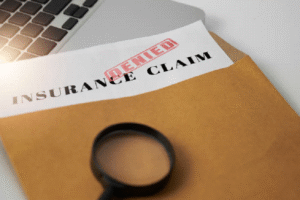Owning a home or property that’s sitting empty can feel like a mixed blessing. On one hand, you might be preparing to sell, renovating, or waiting for new tenants. On the other, an empty property can be vulnerable—exposed to risks like theft, fire, vandalism, or accidental damage.
If you think your regular homeowner’s insurance has you covered while the property is vacant, think again. Many standard policies either exclude or significantly limit coverage when a property is unoccupied for a certain period. This means if something goes wrong while your home is empty, you could be left footing the bill.
So what should you know about protecting an empty property? How can you make sure your investment stays safe and insured? In this guide, we’ll break down everything you need to consider—from understanding the differences in insurance coverage for vacant homes, to practical tips for keeping your property secure.
Why Does Property Insurance Matter for Empty Homes?
When a property is lived in, there’s a natural layer of protection. Someone is there to notice if something goes wrong—whether it’s a break-in, a burst pipe, or suspicious activity. When a home is vacant, that protection disappears.
Standard homeowner’s insurance policies typically expect the home to be occupied. Once your property is empty for a certain number of days (often 30 to 60), the insurance company may:
-
Limit your coverage for damages
-
Increase your premiums or deductibles
-
Exclude certain risks like vandalism or theft
-
Even cancel your policy if they aren’t notified about the vacancy
This creates a gap in protection that could cost you thousands if the unexpected happens.

Key Insurance Considerations for Empty Properties
1. Vacant or Unoccupied Property Insurance
Because of the unique risks vacant properties face, many insurers offer specialized vacant or unoccupied property insurance policies. These policies are designed specifically for homes or buildings without residents and typically cover:
-
Vandalism and malicious damage
-
Theft or attempted theft
-
Fire and smoke damage
-
Water damage caused by burst pipes or plumbing issues
-
Liability protection if someone is injured on the property
Vacant property insurance tends to be more expensive than standard homeowner’s insurance due to these increased risks, but it’s essential for real protection.
2. Understand Policy Duration and Terms
Most insurers will specify how long a property can be vacant before the policy terms change or coverage is reduced. This might be 30 days, 60 days, or even longer, but it varies widely.
Make sure to:
-
Check your current policy’s vacancy clause. Know the exact timeframe and what changes after that period.
-
Notify your insurer immediately when the property becomes vacant. Failure to do so can lead to denied claims if damage occurs during vacancy.
3. Expect Higher Premiums and Deductibles
Vacant homes carry a higher risk because:
-
No one is there to deter burglars or vandals
-
Problems like leaks or fires can go unnoticed for longer
-
The property is more vulnerable to squatters or unauthorized access
Because of these factors, insurers often charge higher premiums and deductibles for vacant property insurance. It’s important to budget for this increased cost as part of your property management plan.
4. Maintain Security and Regular Maintenance
Insurance companies want to see that you’re taking steps to reduce risk. Many policies require you to:
-
Install and maintain security systems, like alarms, motion detectors, or cameras
-
Secure all doors, windows, and entry points with quality locks
-
Perform regular property inspections (weekly, biweekly, or monthly) to check for damage or signs of trouble
-
Keep the property maintained, such as lawn care, snow removal, or repairing damage promptly
Providing documentation of these measures can be critical if you need to file a claim.
Additional Tips to Protect Your Vacant Property
Beyond insurance, here are some practical steps to protect your empty home:
-
Keep utilities on if possible. Heat during winter prevents pipes from freezing and bursting, which is a common cause of costly water damage.
-
Consider hiring a property manager or caretaker to oversee inspections, maintenance, and security. This adds a layer of oversight and can give you peace of mind.
-
Document the property’s condition before it becomes vacant with photos or videos. This helps prove the state of the home if damage occurs.
-
Notify your insurer of any changes, like starting renovations or placing the home on the rental market again. Keeping them informed ensures your coverage stays valid.
What Happens If You Don’t Get Proper Vacant Property Insurance?
If you rely solely on standard homeowner’s insurance and your property is empty for longer than allowed, your insurer might:
-
Refuse to cover a claim for vandalism or theft during vacancy
-
Deny claims for water damage or accidental damage that occurred while vacant
-
Cancel your policy altogether, leaving you uninsured
This means that even a single incident—like a break-in or fire—could cost you tens of thousands of dollars in repairs and replacements.
How to Choose the Right Vacant Property Insurance Policy
When shopping for vacant property insurance, consider the following:
-
Coverage specifics: What exactly is covered and what is excluded? Look for policies that cover vandalism, theft, water damage, and liability.
-
Policy limits and deductibles: Make sure the limits are high enough to cover your property’s value, and deductibles fit your budget.
-
Duration of coverage: Some policies offer short-term vacancy coverage, while others can cover long-term vacancies. Choose what fits your situation.
-
Reputation of insurer: Work with insurers who specialize in vacant or unoccupied properties and have good customer service and claims handling.
-
Cost vs. risk: While premiums may be higher, weigh this against the potential cost of uncovered damage or loss.

Final Thoughts: Protect Your Investment When It’s Empty
Owning an empty property can be stressful enough without worrying about whether it’s properly insured. Understanding the risks and insurance options is key to protecting your investment from unexpected financial loss.
Here’s a quick checklist:
-
Review your current policy for vacancy exclusions or limitations
-
Notify your insurer immediately when your property becomes vacant
-
Consider specialized vacant property insurance for better protection
-
Maintain security and regular inspections to reduce risk
-
Keep utilities active if possible and document property condition
-
Consider hiring a property manager or caretaker for ongoing oversight
By taking these steps, you can have peace of mind knowing your empty property is safeguarded—and avoid costly surprises down the road.





